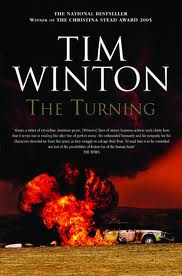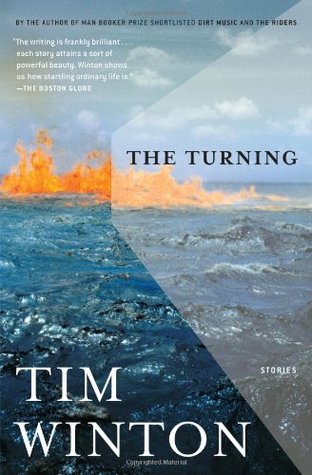We’ve all had to do it at some point in our lives. Some enjoy it, others loathe it, and many just pretend they did it and nod along whenever it comes up. Sometimes you have to read books for school.
I have already read three books for English this year, and I cannot say that any of them were truly bad books. They were all exemplary pieces of literature. I have noticed, though, that a lot of people seem to hate every book we have ever read in class, and I wonder if this is more a matter of principle than of actual dislike for the novel. It is likely that people say they didn’t like the book simply because their teacher picked it and made them read it. I enjoy reading, so I never have much trouble getting into a book at school, but others have to fight against the idea of it being a textbook to actually appreciate it as the novel it was intended to be.
 One of the books I have read this year was Tim Winton’s The Turning. I am a fan of short stories, which helped me to really appreciate this collection as a whole and as I read each self-contained journey.
One of the books I have read this year was Tim Winton’s The Turning. I am a fan of short stories, which helped me to really appreciate this collection as a whole and as I read each self-contained journey.
Winton presents seventeen interwoven stories all set in rural Western Australia. They explore themes of redemption, love, obsession, regret, escape and forgiveness (amongst hundreds more) in stories about moments of turning in each character’s life. Winton’s universal messages resound throughout this poignant collection. His beautifully descriptive style paints a complex and intriguing image of Western Australia, as harsh and unforgiving as many of the characters portrayed. Above all it is honest. No details of human weakness and failure are omitted – this is a raw and profound piece of writing.
Winton’s characters were flawed, but strong because of it. In each story there are moments of redemption and hope, but in reading the collection as a whole, the reader sees each character’s journey in relation to others, and a community of individuals, each with their own turning points, emerges. It is clear that there is not just one defining moment in each character’s life, but many that together shape them as a person and allow them to grow over time.
 Personally I have a fascination with time, and Winton really makes use of this intangible concept throughout the collection. The stories are not in chronological order, nor is it easy to discern what a chronological order would look like. Instead the pieces flow effortlessly back and forth through time, connecting and appearing in other stories until, by the end of the collection, we are presented with something not unlike a spider’s web. It is complex, fragile and a work of art.
Personally I have a fascination with time, and Winton really makes use of this intangible concept throughout the collection. The stories are not in chronological order, nor is it easy to discern what a chronological order would look like. Instead the pieces flow effortlessly back and forth through time, connecting and appearing in other stories until, by the end of the collection, we are presented with something not unlike a spider’s web. It is complex, fragile and a work of art.
There is so much more I could say about this collection – it is wrought with amazing technique and contains messages that ring true in the world today. Winton not only delivers seventeen stories, but also seventeen honest accounts of humanity and a commentary on the society around which this collection revolves.
I really encourage you to give this book a chance, as Winton gives those individuals brought down by society the chance to reinvent themselves and show their strength. It is really a lesson in accepting not only others’ flaws, but our own. No one is perfect, but in moments of turning towards the truth, we can see ourselves in perfect clarity.
